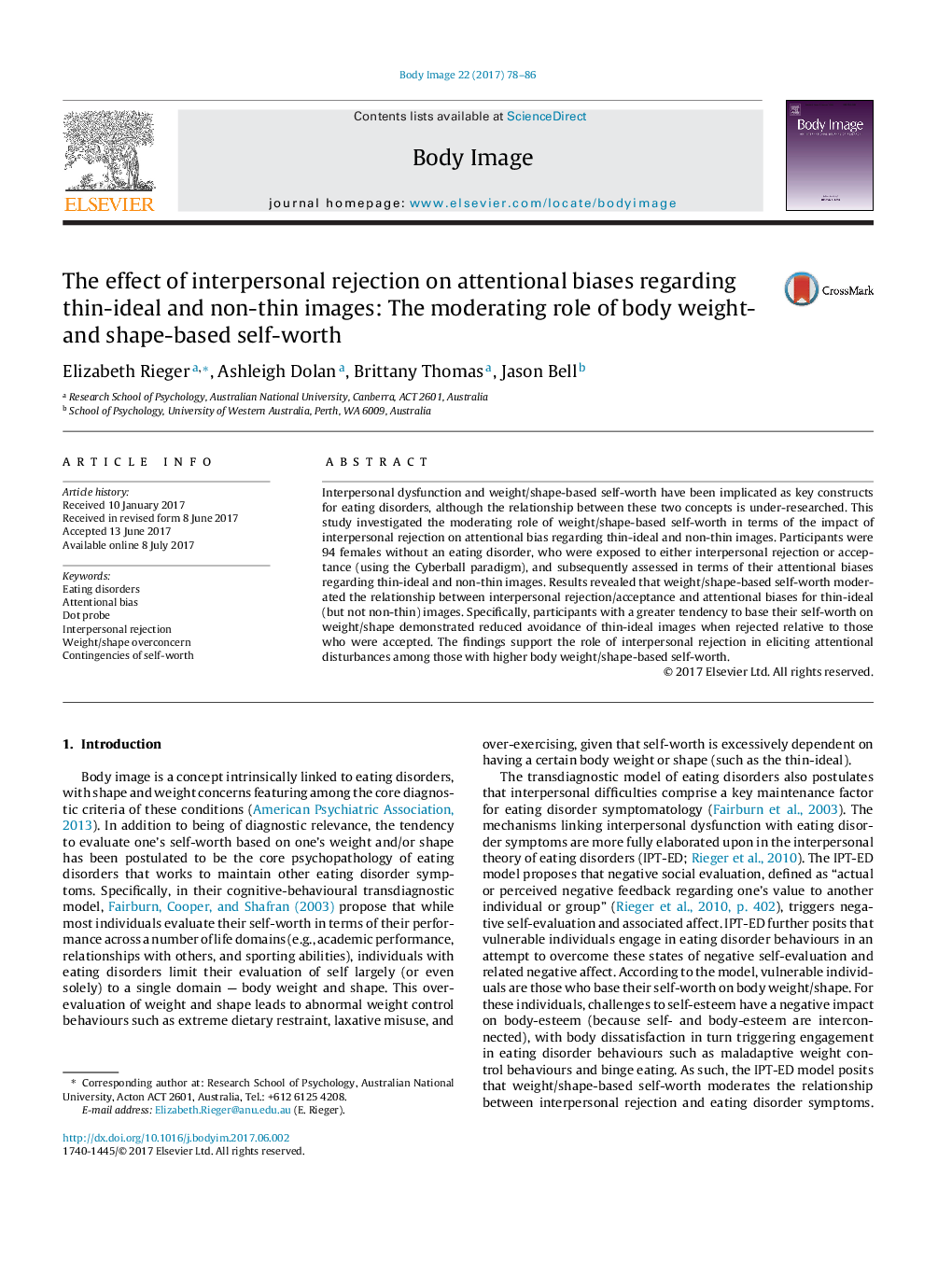| Article ID | Journal | Published Year | Pages | File Type |
|---|---|---|---|---|
| 5038377 | Body Image | 2017 | 9 Pages |
â¢Interpersonal problems and weight/shape concerns trigger eating disorder symptoms.â¢We examined these constructs in relation to attentional biases for thin/non-thin images.â¢After rejection, avoidance of thin images was reduced in those with weight concerns.â¢After rejection, attending to thin images was reduced for those low in weight concerns.
Interpersonal dysfunction and weight/shape-based self-worth have been implicated as key constructs for eating disorders, although the relationship between these two concepts is under-researched. This study investigated the moderating role of weight/shape-based self-worth in terms of the impact of interpersonal rejection on attentional bias regarding thin-ideal and non-thin images. Participants were 94 females without an eating disorder, who were exposed to either interpersonal rejection or acceptance (using the Cyberball paradigm), and subsequently assessed in terms of their attentional biases regarding thin-ideal and non-thin images. Results revealed that weight/shape-based self-worth moderated the relationship between interpersonal rejection/acceptance and attentional biases for thin-ideal (but not non-thin) images. Specifically, participants with a greater tendency to base their self-worth on weight/shape demonstrated reduced avoidance of thin-ideal images when rejected relative to those who were accepted. The findings support the role of interpersonal rejection in eliciting attentional disturbances among those with higher body weight/shape-based self-worth.
